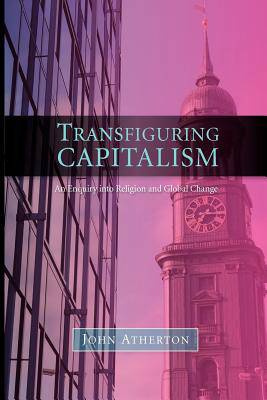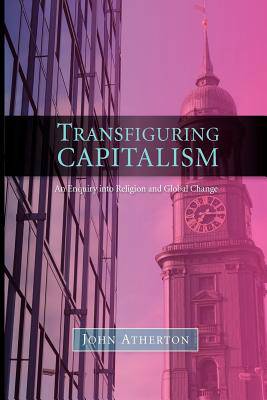
Door een staking bij bpost kan je online bestelling op dit moment iets langer onderweg zijn dan voorzien. Dringend iets nodig? Onze winkels ontvangen jou met open armen!
- Afhalen na 1 uur in een winkel met voorraad
- Gratis thuislevering in België vanaf € 30
- Ruim aanbod met 7 miljoen producten
Door een staking bij bpost kan je online bestelling op dit moment iets langer onderweg zijn dan voorzien. Dringend iets nodig? Onze winkels ontvangen jou met open armen!
- Afhalen na 1 uur in een winkel met voorraad
- Gratis thuislevering in België vanaf € 30
- Ruim aanbod met 7 miljoen producten
Zoeken
Transfiguring Capitalism
An Enquiry into Religion and Global Change
John Atherton
Paperback | Engels
€ 73,95
+ 147 punten
Omschrijving
Transfiguring Capitalism began in the British tradition of relating religion and capitalism, and developed into a four-year enquiry into the contribution of religion to global change. The result is a powerful justification of religion's resurgent role in a global context alongside empires, capitalism and globalization. Elaborating religion's contribution to contemporary life involves conversations with international and multidisciplinary debates about happiness and well-being, in addition to a detailed exposition of faith-based initiatives in partnerships and as distinctively different. Examples are drawn from across the world, including from other faiths. The final part collects key elements of the religious contribution for the future, including reflections on what it means to be human, an interpretation of personal and common good ethics, a consideration of typologies and traditions, and the elaboration of fresh understandings of faithful economics from ethical to theological economies. It is out of all this material that a new stage in British Christian Social Ethics is developed as the transfiguration of capitalism, not least in a critical and innovatory conversation with neo-Marxist views of the empire of global capitalism. John Atherton is retired canon theologian of Manchester Cathedral, honorary lecturer of Manchester University, and secretary of the William Temple Foundation. He has written numerous books and is joint editor of Crucible, the Christian journal of social ethics. He holds doctorates from Manchester and Uppsala, Sweden. This magisterial volume is a splendid resource for all interested in Christian social ethics, and in particular the Anglican tradition springing from R.H.Tawney and William Temple. John Atherton, the leading exponent of this approach today, is at the height of his powers. He takes social science seriously and deploys theological insights and challenges lucidly and helpfully. Duncan Forrester, Professor Emeritus, University of Edinburgh In this impressive book John Atherton gives a thorough analysis of economic globalization and the transformation of capitalism. He demonstrates the contributions of religion and Christian anthropology in dealing with moral issues raised by the global economy. This is an outstanding and thought-provoking study on political economy and Christian social ethics. Carl-Henric Grenholm, Professor of Ethics, Uppsala University, Sweden
Specificaties
Betrokkenen
- Auteur(s):
- Uitgeverij:
Inhoud
- Aantal bladzijden:
- 354
- Taal:
- Engels
Eigenschappen
- Productcode (EAN):
- 9780334028314
- Verschijningsdatum:
- 30/06/2008
- Uitvoering:
- Paperback
- Formaat:
- Trade paperback (VS)
- Afmetingen:
- 150 mm x 231 mm
- Gewicht:
- 453 g

Alleen bij Standaard Boekhandel
+ 147 punten op je klantenkaart van Standaard Boekhandel
Beoordelingen
We publiceren alleen reviews die voldoen aan de voorwaarden voor reviews. Bekijk onze voorwaarden voor reviews.











